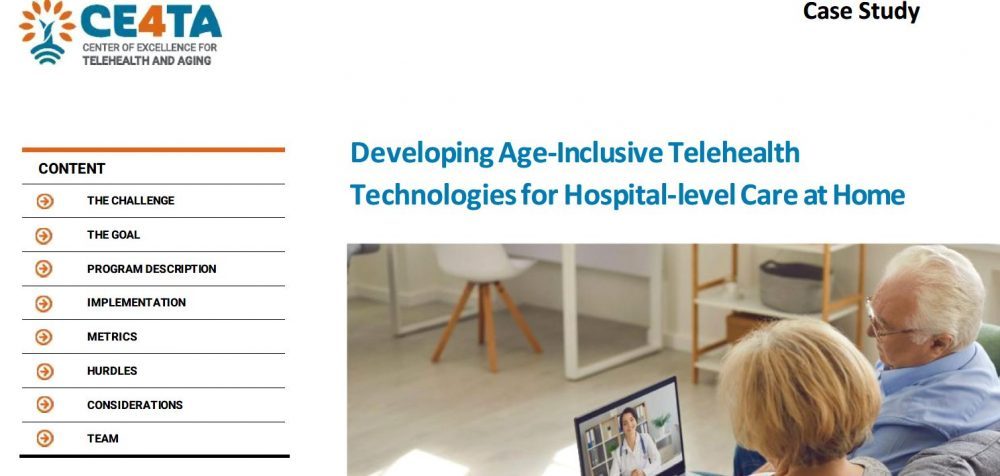This introductory course equips health care professionals with essential knowledge and strategies to deliver telehealth services that are person-centered, equitable, accessible, integrated, and coordinated. Participants will explore best practices for adapting telehealth to meet needs of aging populations, ensuring high-quality, inclusive care.
In this webinar, Dr. Dallas Nelson and Dr. Suzanne Gillespie, Associate Professors of Medicine at the University of Rochester School of Medicine and Dentistry, shared strategies for delivering telehealth services to older adults in post-acute and long-term care settings.
In this webinar Dr. Laurie Archbald-Pannone, Medical Director, and Anthony Nappi, Nurse Liaison of Virginia IMPACT at the University of Virginia School of Medicine, outlined approaches to strengthening telehealth delivery and care coordination for older adults with complex needs. A panel discussion followed with Dr. Christine Ritchie, Chair in Geriatrics and Director of Research in the Division of Palliative Care and Geriatric Medicine at Massachusetts General Hospital/Harvard Medical School, and Dr. Kristin Rising, Executive Director of the Jefferson Center for Connected Care and Professor at Thomas Jefferson University. The panel offered key perspectives on advancing equitable care for this vulnerable population.
This research article examines telemental health use at U.S. health centers, the authors observed notable variations linked to workforce composition, grant funding, and state policy environments. They emphasize that targeted policy efforts, infrastructure investments, and adequate reimbursement mechanisms are critical for ensuring equitable and sustained access to virtual mental health services, particularly among underserved communities.
This implementation guide provides healthcare providers and organizations with a comprehensive framework for delivering effective telebehavioral health services to older adults. Each behavioral health care model included offers practical examples of how to incorporate the Principles and Guidelines for Telehealth and Aging, ensuring the specific needs of older adults are met.
The integrated and coordinated care implementation strategies offer real-world examples of how healthcare providers and organizations can apply the Principle 3 Telehealth and Aging Guidelines across various clinical settings.

Case study highlighting how Medically Home’s technology and operational support are assisting health systems in delivering hospital-level care at home while addressing the unique needs of older adults.
A review showing evidence on use of digital health technology with older adults during COVID-19 pandemic.
Online course from NRTRC for clinicians and caregivers informing best practices for coordinating telehealth care in LTSS settings.
The study aimed to improve telehealth accessibility for older adults by developing and evaluating telehealth education modules.
This study aims to investigate the prevalence and comorbidity of sleep disorders among United States military personnel and veterans, as well as the status of sleep care services at VHA facilities.
Guidance of best practices to assist in hosting telemedicine visit for patients who are Deaf, Hard of Hearing or DeadBlind.
